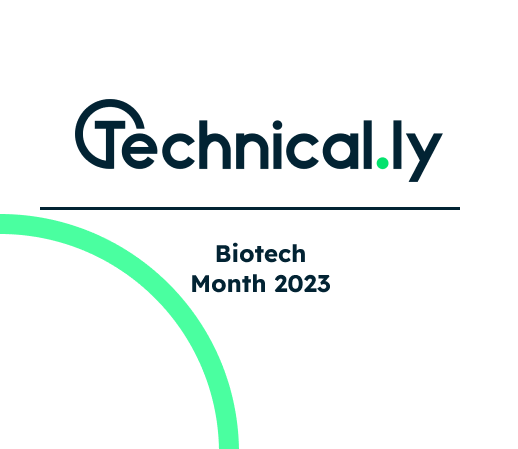Artificial intelligence is more than chatbots and facial recognition. The technology is also being widely applied by organizations focused on healthtech and precision medicine — including in Pittsburgh.
Another notable area where AI could be impactful: oncology. This could mean using machine learning to develop technology that improves methods of cancer detection or using AI to better communicate with patients about their options.
In the case of the Massachusetts-based OncXerna Therapeutics’ founder and CEO, Laura E. Benjamin, her company is developing an AI-driven precision medicine platform that will match oncology patients with the best treatment options based on RNA expression-based biomarkers. This way, according to Benjamin, the biomarkers can be used to match a patient’s tumor with the drugs that would best treat their tumor.
Benjamin — who is also executive board chair for Sharpsburg’s BioHybrid Solutions — provided insight during a recent BioBreakfast presentation at The Riviera in the Pittsburgh Technology Center into how AI and oncology could potentially be leveraged for better oncology treatments and the results her company had found in its five years of work. One result Benjamin’s team observed was that by using RNA sequencing, researchers had found a new way to test cancer drugs using a specific file and intersection of signals. A study showed that biomarker-positive patients who were not treated with additional therapy had poorer outcomes than those who were treated, indicating that the biomarker is both prognostic and predictive, she said.
Benjamin added that OncXerna Therapeutics had successfully completed the trial of Navicixizumab, one of the company’s drugs currently being studied in ovarian cancer, triple-negative breast cancer and colorectal cancer. The current results have been an improved progression-free survival and response rate compared to standard chemotherapy.
“What we saw in this late line of every cancer patient study was that the patients that were angiogenic by biomarker had a significantly better progression for survival,” Benjamin said. “ … We also have a much better response rate of tumor shrinkage as opposed to just stable disease.”
Moving forward, Benjamin said, the goal is for future trials to pave the way for predicting treatment success in breast cancer patients. In the present, by using these kinds of biomarkers, the company’s researchers have been able to take RNA-based signatures and use AI to capture the complexity of the biology, while providing a binary readout so that they have a more robust clinical diagnostics environment.
Since cancer patients are often up against the clock, the company’s leaders hope using technology to analyze tumor tissue samples to understand cancer progression and develop personalized treatment strategies will help patients make the best choices possible.
“At the end of the day, we really tackle these challenges of expanding precision medicine outside of just the single analyte mode of DNA,” Benjamin said. “It allowed us to think about identifying patients based on biology as a way to do something that works across tumors, others, they give you examples of colon cancer, gastric cancer, ovarian cancer, the algorithm is the same.”
Atiya Irvin-Mitchell is a 2022-2024 corps member for Report for America, an initiative of The Groundtruth Project that pairs young journalists with local newsrooms. This position is supported by the Heinz Endowments.
This editorial article is a part of Biotech Month of Technical.ly’s editorial calendar.
Before you go...
Please consider supporting Technical.ly to keep our independent journalism strong. Unlike most business-focused media outlets, we don’t have a paywall. Instead, we count on your personal and organizational support.
Join our growing Slack community
Join 5,000 tech professionals and entrepreneurs in our community Slack today!

The person charged in the UnitedHealthcare CEO shooting had a ton of tech connections

From rejection to innovation: How I built a tool to beat AI hiring algorithms at their own game

The billion-dollar creator industry hits Pittsburgh — and disrupts the innovation economy



